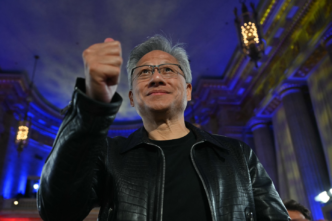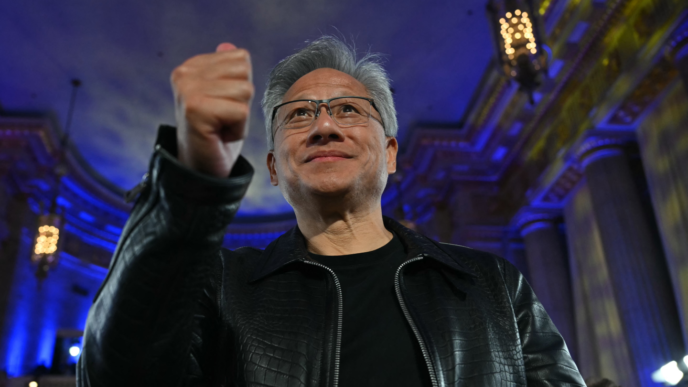Cracker Barrel Old Country Store, the restaurant-and-retail chain synonymous with roadside Americana, has found itself in the middle of an unexpected culture clash over its recently redesigned logo. The company has issued an apology to longtime fans offended by the change but made clear it has no plans to abandon the new branding, despite loud criticism from political figures and competitors.
The Controversy Erupts
The uproar began earlier this month when Cracker Barrel unveiled a refreshed logo aimed at modernizing its brand identity for digital platforms and new consumer segments. The updated design pared down its intricate woodcut-style imagery of a man with a barrel, opting instead for a simplified version that emphasizes cleaner lines and a more streamlined aesthetic.
The rollout was intended to align Cracker Barrel with contemporary branding trends and expand its appeal to younger audiences while maintaining the chain’s heritage. But the decision was met with backlash from some loyal customers who viewed the change as an unnecessary departure from tradition.
Among the most vocal critics was Donald Trump Jr., who accused the chain of “selling out” and “erasing Americana to appease the woke mob,” in a social media post that quickly went viral. Meanwhile, Steak n’ Shake—another heritage-rich American restaurant chain—took the opportunity to mock Cracker Barrel’s rebrand, releasing tongue-in-cheek ads declaring it would “never abandon its steak knives or its shakes.”
Cracker Barrel’s Response
Facing the outcry, Cracker Barrel issued a statement apologizing to fans who felt alienated by the new design but stood firmly by its decision.
“We deeply value the loyalty and passion of our guests who have made Cracker Barrel part of their families and traditions for more than 50 years,” the company said. “While we understand that change can be difficult, our refreshed logo is designed to honor our heritage while ensuring that our brand thrives in an increasingly digital world. We have no plans to revert to the previous version.”
Executives emphasized that the redesign is not part of any political agenda but rather a pragmatic step toward relevance in a crowded restaurant industry that increasingly competes for attention online.
Why Logos Matter in the Restaurant Industry
Brand identity has long played a crucial role in the restaurant business, where nostalgia and tradition often drive customer loyalty. Cracker Barrel, with its rustic décor, rocking chairs, and old-timey general store offerings, built a brand deeply associated with rural Americana.
“Logo changes in heritage-driven brands like Cracker Barrel can spark disproportionately emotional reactions,” said Amanda Greenfield, a brand consultant at CPG Strategy. “For longtime customers, it feels like a rewriting of the story they grew up with. But for new audiences, simplified logos are easier to recognize on apps, social media, and delivery platforms.”
Political Overtones and Cultural Backlash
The involvement of Donald Trump Jr. has pushed the debate far beyond a marketing discussion, injecting culture war overtones into the controversy. His framing of the rebrand as a political issue amplified the outrage and spread the conversation across partisan media outlets.
This political attention has created challenges for Cracker Barrel, a company that has historically tried to maintain broad appeal across regional and demographic lines. Its statement carefully avoided political references, underscoring its strategy to keep the focus on business rationale rather than ideology.
Competitor Opportunism: Steak n’ Shake’s Play
Steak n’ Shake’s public ribbing of Cracker Barrel highlights another dynamic in play: brand rivalries. In an era when viral marketing stunts can win significant attention, the rival chain saw an opportunity to position itself as the keeper of tradition while poking fun at its competitor.
“By mocking Cracker Barrel’s redesign, Steak n’ Shake is positioning itself as a purist brand that resists change,” said restaurant analyst David Ziegler. “But this could backfire if younger consumers see it as stodgy rather than authentic.”
Looking Ahead for Cracker Barrel
Despite the criticism, analysts believe Cracker Barrel is unlikely to face long-term damage from the backlash. Social media controversies over branding are common in consumer industries, and most fade as customers refocus on product quality and experience.
Still, the company will need to tread carefully as it continues its modernization strategy. With pressures from inflation, shifting dining habits, and rising competition in casual dining, Cracker Barrel is balancing the delicate act of preserving tradition while appealing to a new generation of diners.
“Cracker Barrel’s challenge isn’t just about a logo—it’s about evolving without alienating its base,” Greenfield noted. “The true test will be whether the company can keep its unique identity alive while still adapting to a rapidly changing market.”
Conclusion: A Symbol Beyond a Logo
The Cracker Barrel logo controversy illustrates how even minor branding changes can escalate into major cultural debates in today’s hyper-politicized, social media-driven landscape. While the company’s apology acknowledges customer emotions, its firm stance to retain the new design signals confidence in its modernization strategy.
As the dust settles, the outcome may depend less on the logo itself and more on whether Cracker Barrel can continue to deliver the same sense of comfort, tradition, and familiarity that generations of customers have come to expect.















